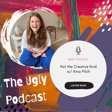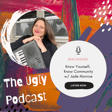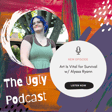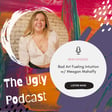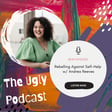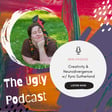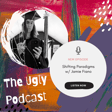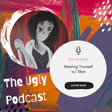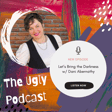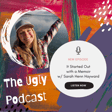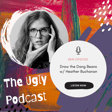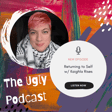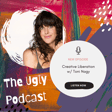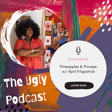
Finding Your Style w/ Heather Buchanan
In today’s episode, I chatted with artist, writer, and accidental astrologer, Heather Buchanan. You know her from her distinctive, goofy, watercolors and oil paintings with noseless faces as well as her weekly, totally real, horoscopes, Horror Scoops. We discussed her days of painting portraits and when she realized that she wanted to find her own style rather than relying on what other people wanted to see and what would make her money. Along with that process came putting in hours of work that no one would ever see, dealing with the fear of showing work that’s completely different than people were used to seeing, and learning to trust her inner weirdo.
Talking to Heather gave me so much hope in the creative process. Particularly in the hours of work that no one will see–those scribbles and doodles, those tiny poetry blurbs and short stories and first drafts–it’s all flexing the creative muscles and getting to know who you are and what you want to bring into the world. And when we bring our authentic weirdness into our art and share it with others, we give everyone permission to show up in their weirdness too. What a gift!
You can follow Heather on Instagram @heatherbuchanan and @horror.scoops, and you can purchase some of her incredible art at heatherbuchanan.ca.
References:
Heather’s interview with CBC
Hanni’s Kim Kardashian sculpture
